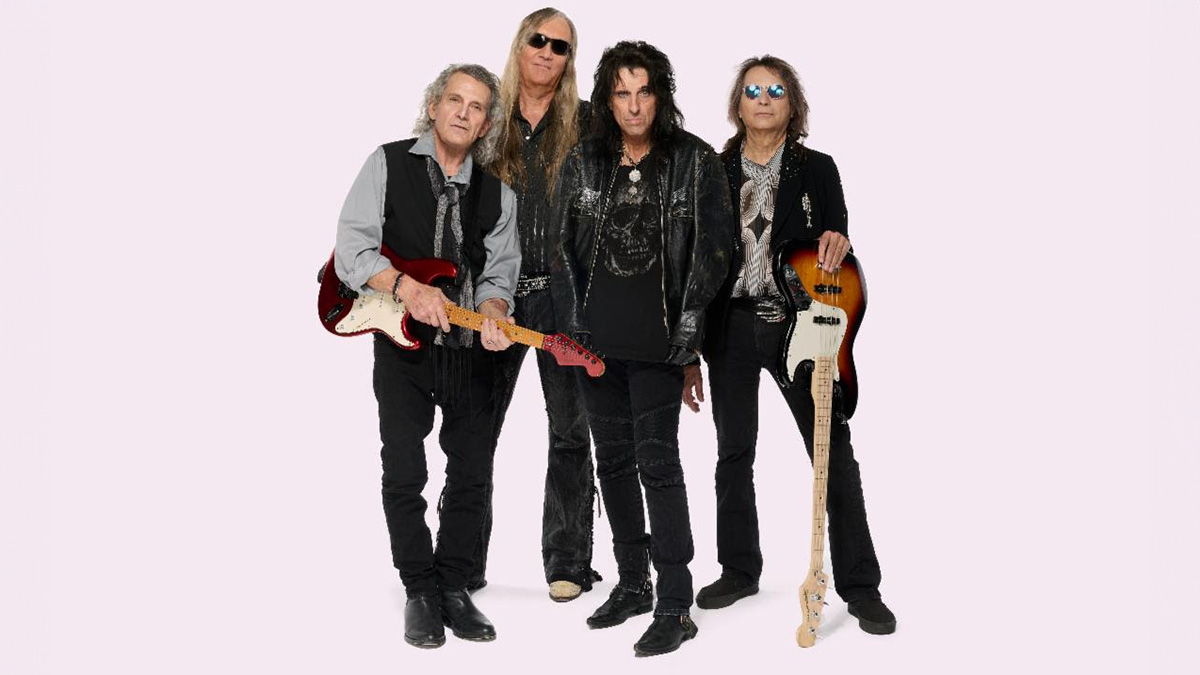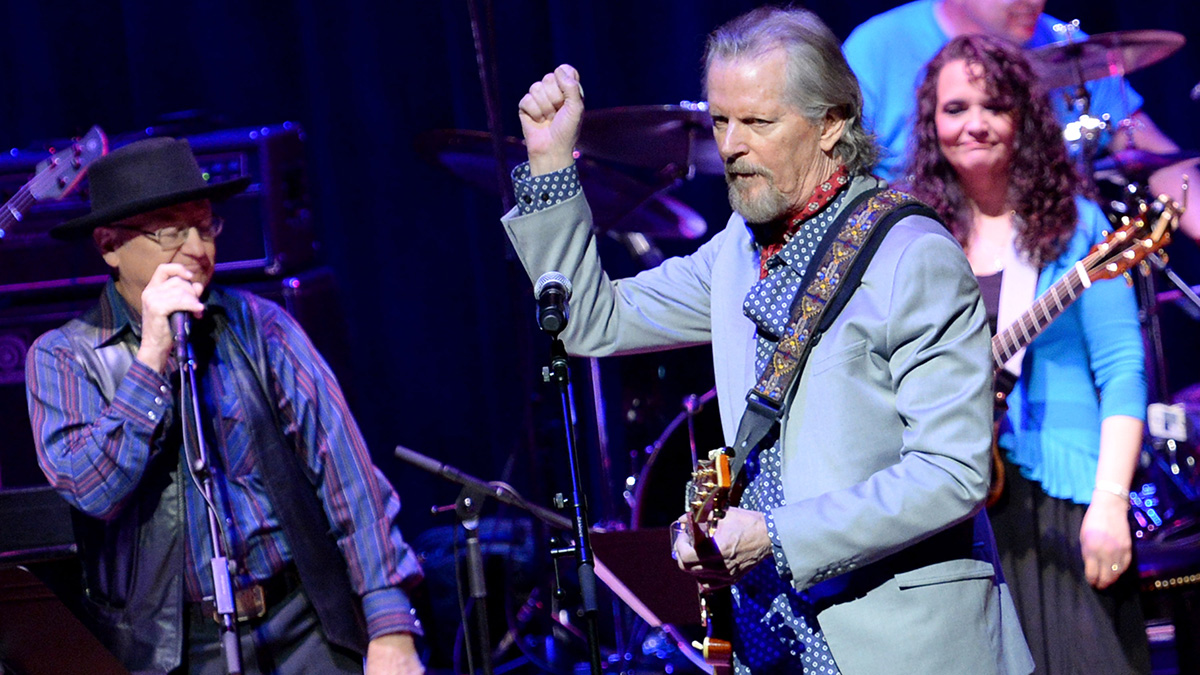Lucy Dacus finds hope in loss on her brilliant sophomore album, Historian
A masterclass of songwriting that confronts loss, anxiety and fear head-on, Historian still manages to emerge as a hopeful, cathartic document of the strange, unprecedented times that we live in

If you care about music – regardless of what genre or artist floats your particular boat – there's an artist (or a few) whose music stopped you in your tracks when you first heard it. There are those songs that—on first listen—blocked out all of your brain's innumerable other activities; the ones that make you sit back and think '.....shit.....'
For me, one of those moments occurred when I happened upon "Map on a Wall," an album track from a then-20-year-old Richmond-based singer/songwriter named Lucy Dacus. It's a hurricane of a song that more than speaks for itself; a yearning confessional that builds and explodes before returning to its tense, slow-burning beginnings in a dizzying circle.
It's the kind of undeniable, jaw-dropping song that inevitably makes the professional town criers of rock music sprint over to their pedestals and shout "This! This is the answer!" The thing is though, that Dacus never asked, or wanted any of those expectations placed on her shoulders.
Her 2016 debut album, No Burden – which contained "Map on a Wall" – among other standouts like "Green Eyes, Red Face" and "Strange Torpedo" – was recorded in 20 hours, for her live guitarist's (Jacob Blizard) school project. Of course though, as soon as Dacus premiered the album's lead single and opening track, "I Don't Wanna Be Funny Anymore," on The Fader, labels of all sizes – from the biggest majors to small indies – came knocking.
Eventually, Dacus chose indie powerhouse Matador, the label that's releasing her second LP, Historian. The album is a masterclass of songwriting that confronts loss, anxiety and fear head-on, but manages to emerge as a hopeful, cathartic document of the strange, unprecedented times that we live in. Read on to see our discussion with Dacus about the new album.
Obviously, you’re gearing up for a massive tour that’s starting soon, but you’ve been off the road for awhile. What have you been up to lately?
Well, we were supposed to be on tour but three of our tours got cancelled, so it’s been kind of unexpected free time. We’ve been filling it well, I’ve been doing a lot of reading, we played nerdy board games with our friends, and the time isn’t empty of business either. I probably work every day, trying to come up with how to share the album best, working on art, thinking a year down the line [about] what’s next. Just trying to be as attentive as possible. The goal would be that every facet of this release has been thoroughly and carefully thought through. There’s no time to be lost on that front.
Get The Pick Newsletter
All the latest guitar news, interviews, lessons, reviews, deals and more, direct to your inbox!
You went from making a low-key Bandcamp record to being courted by major labels and getting shouted out by Tim Kaine seemingly overnight. How heavily did all that weigh on you when you were writing Historian, if it did at all?
It didn’t weigh that much, actually. I was really worried that it would affect the songwriting. I hear a lot of artists become kinda self-referential, and a lot of people that tour a lot tend to write about the perils of being on the road later in their careers. Luckily, with the material on this record, I wrote a lot of it before No Burden and I wrote a lot of it after, and so it’s not necessarily about touring in general, it’s about ideas that I’ve been having for a really long time and thoughts that have kind of captured my mind for the past couple years.
Was there anything in particular you were reading or listening to that rubbed off on you while you were making the record?
Joan Didion’s The Year of Magical Thinking comes to mind as an example of a piece of media that I really respect and would hope to emulate. Just her courage in looking at her husband’s death and the attentiveness that she has in how she looks at it, and the unflinching gaze that she communicates from looking into death. It’s not easy to read, but I appreciate anybody that has the strength to do that because a lot of people aren’t strong enough, or at least it hurts too much to look at something that causes so much sorrow.
On the album, I also take a hand at writing about death, loss, confusion, frustration and all of the things that are plagues on humanity and have affected me in my life, but I try to do that with a sense of hopefulness, and I hope that that comes across more so than the negativity that the hopefulness is about.
“Night Shift” is such a titanic, epic song. Why did you choose that as the opener?
I know it’s not a regular opener, like, it’s not the radio hit. It’s super long, and it starts off really slow, but what I wanted to show people was the dynamic range of the album. It begins very soft, and it’s a slow build-up to the ending, which is one of the heavier moments on the album. I don’t even know if it’s the heaviest, but I think it does establish kind of a new bar that we’ve reached when it comes to sound and ferocity. No Burden is not necessarily ferocious. (laughs) It doesn’t really reach the same height as Historian, sonically. I just wanted to assert that. The first thing you hear, this is what the album’s about, this is what I want people to expect of me from now on.
You’ve said this album is heavily focused on loss, and I noticed that in “Night Shift” you say “In five years I hope the songs feel like covers.” Obviously, “Night Shift” is about a specific relationship, but do you hope that other songs on Historian will feel like covers in five years? Given the theme of loss?
Yeah, I think “Night Shift” specifically. That line is in that song, and it’s about that song. Part of letting go of that relationship was writing the song and expressing it.
I’m very easily captivated by confusion. Questions don’t easily die within me until they’re answered and so being able to write a song and put words to complex feelings is part of my process of understanding and letting go of things. Writing that line is what is gonna make it possible for that feeling to fade, just identifying it for what it is. I’ll always know what it’s about, but it’s not going to matter! The intensity is going to fade, and that’s a huge comfort.
Going off the theme of loss, on “Pillar of Truth,” you write about how at peace your grandmother seemed to be with her death, and on “Next of Kin,” you say “I am at peace with my death.” What, in particular, links those two songs?
I think it was possible to write that line, “I am at peace with my death,” by watching her. She was the first person I got to see up close and personal die a death that I thought was really admirable, beautiful and dignified. I guess I put “Pillar of Truth” as the penultimate song just because I think it’s a great example of what is laid out in “Next of Kin.” I aspire to her level of calm and composure, and I’ve learned a lot from witnessing her death.
I come in and out of agreeing with myself, being at peace is not a stagnant feeling. You can be grasping it, and it can slip away, and it comes back. Being able to sing that song night after night is helpful for me to remind myself that I’ve been capable of that feeling before and I can feel it again. Also, singing “Pillar of Truth,” I get to remember my grandmother and keep that example at the forefront of my mind.
You’ve said that there’s little difference between personal and political songs, which is why I find the title, Historian, so interesting. Do you feel like you, in writing such a personal record, have actually captured a lot of what it’s like to live in these insane times?
Yeah, I mean, people talk about political unrest and I believe that that is a symptom of the fear of death or just fear in general. A lot of people are afraid right now. Some people lean into it by being greedy or power-hungry and other people lean into it by succumbing to anxiety, and I’m guilty of that occasionally. A lot of conversations are centered around fear of what’s going to happen next, how we should handle existing in a place that feels wrong, being a part of something that doesn’t feel like ours.
Then again, saying ‘ours’ is weird, because we think in this bi-partisan situation, but in general, nobody really feels like the country is theirs right now, no matter your party. And so, if you take one step back from the political world and the names and faces and events that are involved, I think that there’s a communal feeling that is really relevant, and even if it’s a negative feeling, I think it’s unifying to acknowledge and it helps understand people that you don’t get. Well, I said you, but I mean me! It helps me understand people, and I remember that everybody shares similar fears—people feel threatened by things that are real, and people feel threatened by things that aren’t real. So, the album is about pretty regular experiences.
It’s all very common. Loss is very common, defecting from society—in certain ways—is pretty common. Finding hope in those things I think can translate into hope for other things, including hope for the country as a whole.
You worked with Jacob Blizard and Collin Pastore again for this record, and you decided to settle in Richmond. How much of a role does that sense of community play in your writing, and in your music?
I think I just don’t know what my life would be without it. It’s probably integral, but it’s so integral that I can’t imagine anything else. I think what’s special about working with Colin and Jacob is we’ve just known each other so long and we’ve built a vocabulary over time that we didn’t even know we were building. Being familiar with each other’s work, familiar with each other’s tendencies, each other’s pace, it makes recording very quick [and] makes it a very comfortable experience. I feel like I can trust both of them fully and, occasionally we disagree, and I usually win just because my name has to go on it at the end of the day. [laughs]
They’re both really creative. Jacob did the arrangements for the strings and the horns, he played most of the guitars. He has a huge pedalboard, he uses each and every pedal on it. Collin engineered, did a producer’s mix and produced some of the songs with us. It’s been really cool watching both of them get better at their craft, and I can’t really imagine working without them at this point.
Did you feel any pressure to cut ties with that community, move to a bigger city, and work with bigger, more celebrated names?
I have never felt the urge to do that, but I feel it from other people. A lot of people think ‘Oh, when are you going to move to New York?,’ and I’m like, ‘Hopefully, never’! I can’t handle the noise, and it’s so crowded. You know, it is a hassle, I have to go to New York probably once a month or once every two months and I get how people don’t want to travel that often, but it’s still worth it to me to be in a town that’s more quiet, that’s more familiar. We tour so much, but I don’t even have the time to get to know any other city. So I just have to admit that Richmond is home, and just be comfortable with that because I don’t think I’m going to have the chance to really get to know another city for a long time to come.
To me, your guitar sound is unmistakable. What gear have you been using in the studio?
All of my guitar parts I played on a Gretsch White Falcon, which is a much prettier guitar than I deserve. It was a gift and I hardly feel like I should even hold it, but it’s beautiful and it sounds great, it has a lot of warmth. We made sure to pair it with a Matchless amp. It breaks up in a nice way. I used to play solo and so I used to play through an Orange combo amp with my Epiphone, which I still play. I still play my first guitar, which is an Epihpone Sheraton II. I just like that there’s a lot of low end, I like that the more I dig into it, the more it breaks up. It allows me to have giant dynamics by myself, and a lot of the songs do get down to just voice and guitar occasionally.
I have sort of expanded my gear for this tour cycle to help replicate some of the tones that Jacob had and that John Congleton gave us in the mixing of the album. I just got a reverb/delay from Keeley Electronics, which is really nice. I’ve always had a Boss DS-1, Jacob just re-gifted me his Electro-Harmonix Soul Food, which is a great boost. That’s all over the record, actually. I have a Big Muff for “Timefighter” and “Night Shift,” and that’s always kind of like, max grit and fuzz, and I have a little compressor that I’ve been using. I’m kind of new to the gear stuff because it’s never super appealed to me, just because it seems expensive, but I’ve been collecting, I’ve been taking hand-me-downs from people and making them work for what we need. Yeah, I’m starting to get into it a little bit. [laughs]
Historian is out via Matador on March 2.
Jackson is an Associate Editor at GuitarWorld.com. He’s been writing and editing stories about new gear, technique and guitar-driven music both old and new since 2014, and has also written extensively on the same topics for Guitar Player. Elsewhere, his album reviews and essays have appeared in Louder and Unrecorded. Though open to music of all kinds, his greatest love has always been indie, and everything that falls under its massive umbrella. To that end, you can find him on Twitter crowing about whatever great new guitar band you need to drop everything to hear right now.











